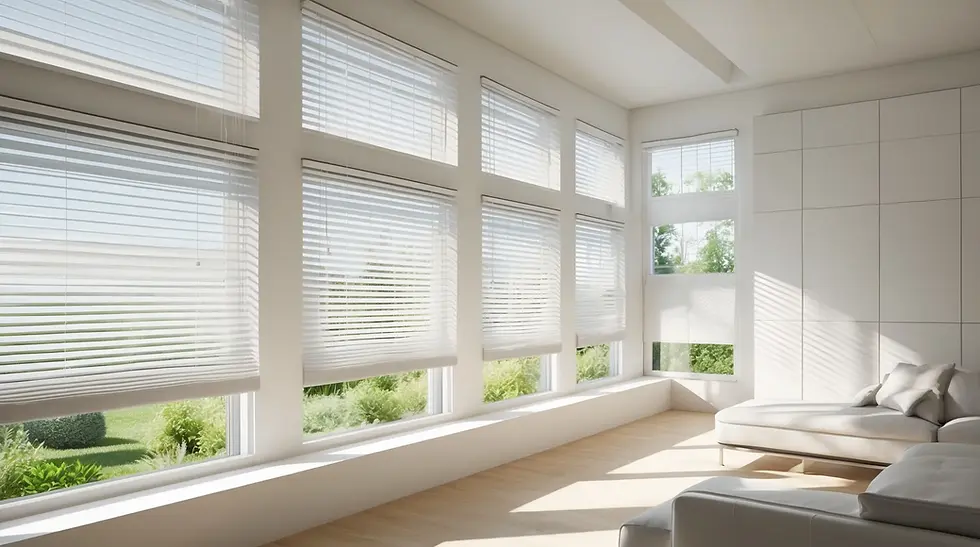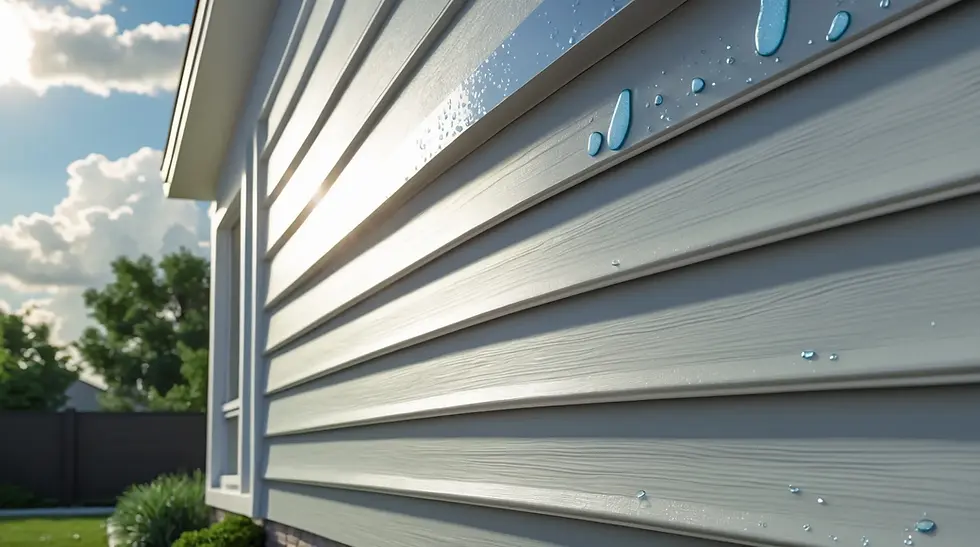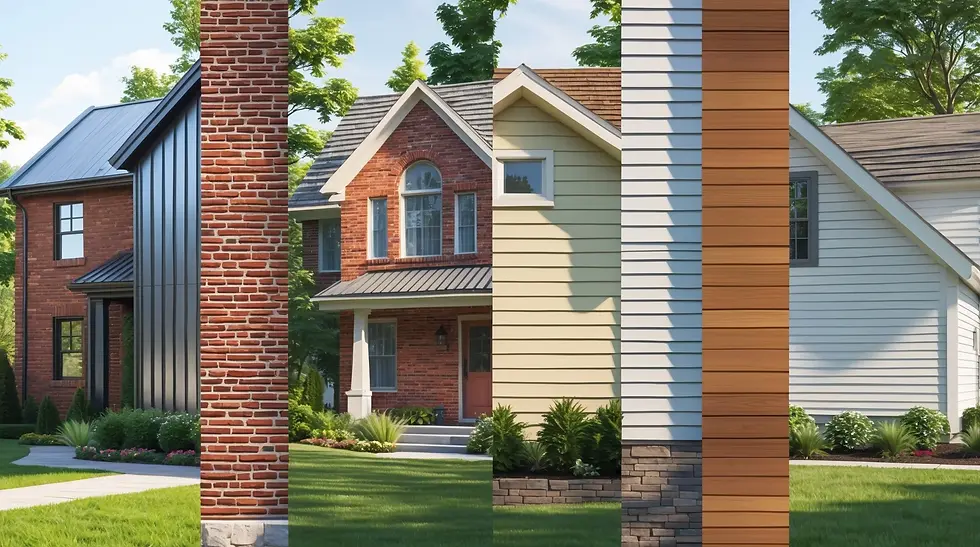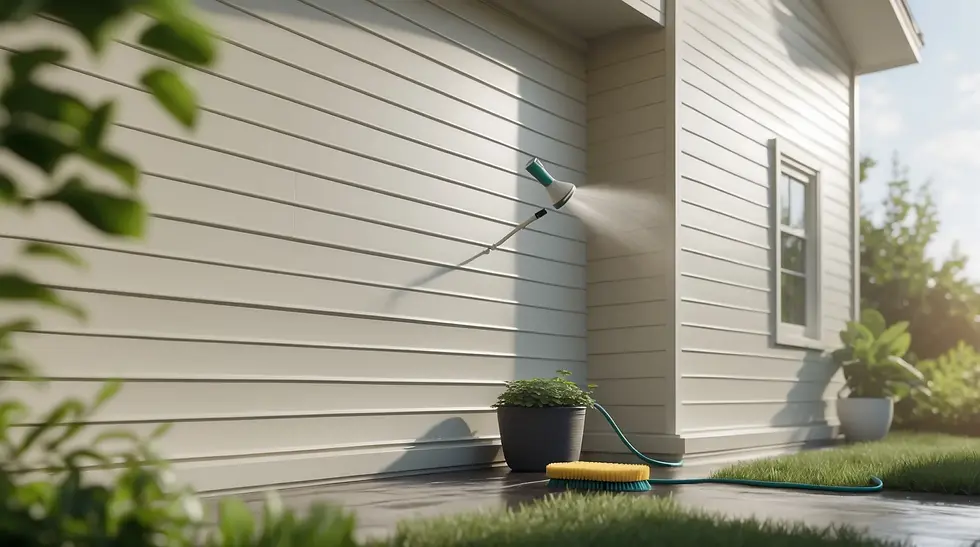How Long Does Vinyl Siding Last? A Complete Guide for Homeowners
- slyterventures
- Aug 25, 2025
- 5 min read
Vinyl siding is one of the most common ways to cover the outside of a home. It’s easy to clean, doesn’t cost too much, and comes in many colors. It also looks good on both old and new homes. Many families choose vinyl siding because it doesn’t need much upkeep. But a common question people ask is: How long does vinyl siding last? The truth is, vinyl siding can last a long time if it’s taken care of. Some people think it wears out fast, but that’s not true. The key is knowing what to look for and how to take care of it so it lasts as long as possible.

What Homeowners in East Tawas, MI Should Know About Siding Lifespan
In East Tawas, MI, weather can be rough on homes. We get sun, wind, rain, and snow. That’s why your siding needs to be strong. Vinyl siding does well in this kind of weather, but how long it lasts depends on many things. Cold winters and hot summers can make siding expand and shrink. Over time, this can lead to cracks or warps if it’s not installed right.
Still, many homeowners in this area are happy with vinyl because it handles moisture better than wood. It also doesn’t rust like metal. For homes near water or wooded areas, vinyl offers great protection without needing a lot of care.
How Long Does Vinyl Siding Last on a House?
So, how long does vinyl siding last on a house? Most experts say around 20 to 40 years. That’s a big range, but it depends on the quality of the siding, how it was installed, and if it's maintained. If you pick high-quality vinyl siding and install it the right way, it may even last 50 years. But if it’s cheap siding or put on wrong, it might need to be replaced in 15 to 20 years. The vinyl siding lifespan also depends on sunlight exposure, moisture, and how often it’s cleaned.
Understanding Vinyl Siding Lifespan vs. Other Materials
Vinyl is known for lasting a long time without much work. But how does it compare to other types of siding?
Wood siding can last 20–40 years, but it needs painting and may rot.
Aluminum siding often lasts 30–50 years, but it dents easily.
Fiber cement lasts about 30–45 years and resists fire but costs more.
Steel siding can last over 50 years but may rust without good care.
In general, vinyl siding's longevity is excellent for the price. It doesn’t rot or rust, and you don’t have to paint it. That makes it a top pick for homeowners who want to save time and money.

What Affects the Life Expectancy of Vinyl Siding?
The life expectancy of vinyl siding depends on a few key things:
Quality – Thicker siding usually lasts longer than thin siding.
Installation – Poor installation leads to problems like buckling or gaps.
Sunlight – Too much sun can fade colors and make siding brittle.
Moisture – Water trapped behind siding causes damage over time.
Storms – High winds and hail can crack or break panels.
Keeping siding clean and checking it every year can help it last longer. When it's well taken care of, vinyl siding stays strong and good-looking for decades.
Signs That Your Siding Is Near the End of Its Life
Even the best siding won’t last forever. Knowing when it’s time to replace it can save you money and stress. Here are signs your siding might be wearing out:
Cracks or holes – These can let in water and bugs.
Fading color – This often means the material is getting old.
Warping or bubbling – A sign of heat damage or poor installation.
Loose panels – If siding won’t stay in place, it may need to be replaced.
Mold or mildew – This can mean water is trapped behind the panels.
If you notice any of these, it might be time to ask how often should siding be replaced and plan for an update.
Siding Durability: How Vinyl Stands Up to Time and Weather
Siding durability means how well your siding can stand up to things like rain, wind, heat, and cold. Vinyl is tough because it doesn’t rust, peel, or attract bugs. It also handles heat pretty well if installed with room to expand. Vinyl siding is made from plastic, so it doesn’t absorb water. That means no warping or rotting. It’s also light, so it’s easy to put on and doesn’t need heavy support. With normal weather and good care, vinyl siding durability beats many other materials.

What Type of Siding Lasts the Longest?
If you’re wondering what siding lasts the longest, here’s how popular types rank:
Steel siding – Can last up to 50+ years.
Brick – Often lasts over 100 years, but it's very costly.
Fiber cement – Around 40–50 years with good care.
Vinyl siding – Typically lasts 20–40 years, sometimes more.
Wood siding – Needs regular painting and may last 20–30 years.
So while vinyl may not last as long as brick or steel, it’s still one of the longest lasting siding types for the money. Plus, it's easier to install and maintain.

You may have heard that vinyl is maintenance free siding. That’s almost true but not fully. You don’t need to paint it, and you don’t need to seal it. But you still need to clean it once or twice a year. Just use a hose, a soft brush, and soapy water. This keeps dirt, mold, and mildew from building up. Also, check for cracks or gaps. If you catch small problems early, you can stop big ones from happening.
So while vinyl siding isn’t totally maintenance-free, it’s as close as it gets.
Choosing the Best Type of Vinyl Siding for Longevity
Not all vinyl siding is the same. Choosing the best type of vinyl siding helps your home look better and last longer. Here’s what to look for:
Thicker siding: Better at resisting cracks and damage.
Insulated siding: Keeps your home warmer and quieter.
UV-resistant color: Lasts longer in sunny areas.
Warranty coverage: Look for siding with 20–30 year guarantees.
Ask your contractor to show you samples and explain the pros and cons of each. A good brand and proper install can help vinyl siding last for decades with very little work.
Trust Revord Builders for Lasting Vinyl Siding Solutions
When it comes to your home’s exterior, siding isn’t just about looks it’s about protection. Choosing vinyl siding is a smart way to save on maintenance and enjoy peace of mind for years to come. At Revord Builders, we’ve helped homeowners across Michigan upgrade their homes with quality, long-lasting siding. We know what materials work best in local weather and how to install them right the first time. With our experience and honest advice, your home will be in good hands. Whether you're building new or replacing old siding, we’re here to help make the process smooth, affordable, and stress-free.
Want to get more life out of your home’s exterior? Contact Revord Builders today to learn about your vinyl siding options and get a free estimate. Your home deserves siding that lasts.




Comments